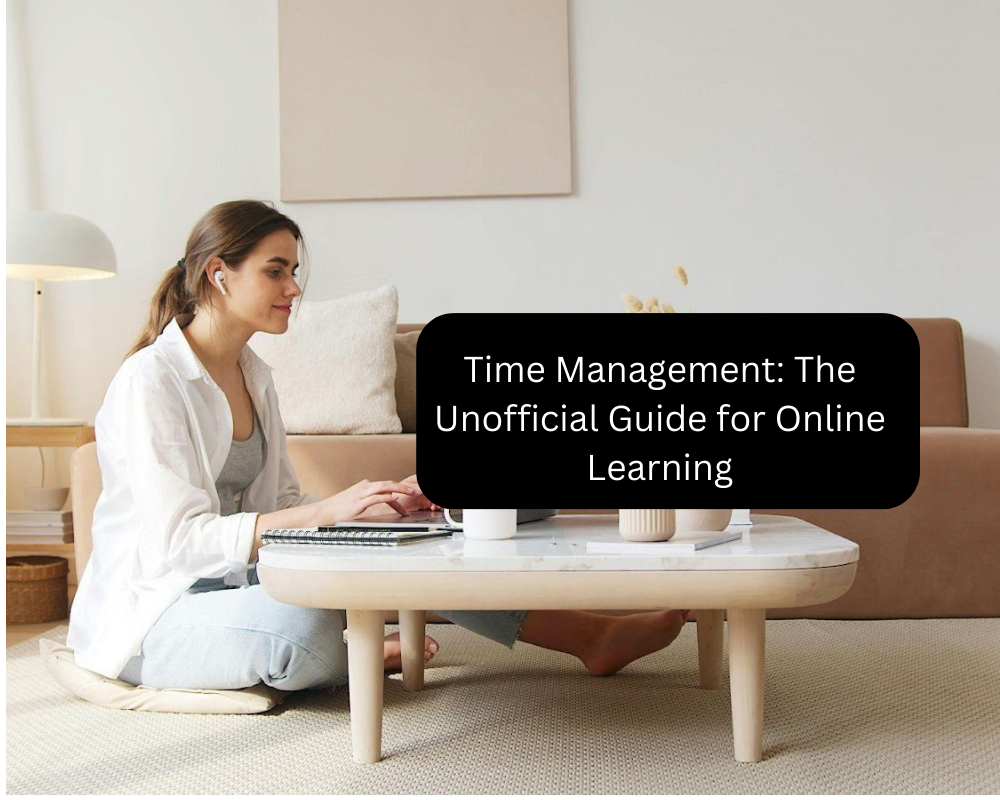
Hey there, digital adventurers! Welcome to the cozy corner of the internet, where we talk about the wild ride of online learning. Picture this: you, your laptop, and a mountain of digital coursework. Exciting? Absolutely. A bit daunting? Certainly. But fear not because today, we’re diving headfirst into the art (and heart) of managing our time without losing our minds. So, grab a cup of something delicious, kick back, and chat about how to keep our virtual learning journey productive and joyful.
Playing Detective with Your Time
Okay, team, let’s start with a game called “Where in the World Did My Time Go?” It’s like being a time detective, tracking down those sneaky minutes that slip through our fingers. Imagine it’s a typical Wednesday. You start your day with the best intentions, but you’re left wondering where all your time went by the evening. Educational robots are transforming online learning by providing interactive and engaging experiences that foster hands-on exploration and problem-solving skills. You log into your computer to start an online course module at 9 AM. By 9:15 AM, you find yourself responding to emails. Then, a quick scroll through social media stretches into an hour-long dive. By lunchtime, you’ve only just started on the module you intended to finish by noon. Tracking your activities can reveal these patterns, showing you that perhaps the early morning is best reserved for focused study, with emails and social media allocated to specific, limited times later in the day.
Your Study Nook: More Than Just a Space
Imagine a place where your productivity blooms like flowers in spring—a study nook that’s all yours. Whether it’s the quiet corner of your bedroom, a desk with quirky knick-knacks, or even your kitchen table, make it a place where distractions are banished, and focus is the guest of honor. It’s not just about where you study but about creating a vibe that whispers (or shouts, if that’s your style), “It’s go time.”
Finding Your Groove: The Magic of Routine

Routine might sound like the boring cousin of spontaneity, but trust us, it’s where the magic happens. Set up a study schedule that vibes with your life and can turn chaos into a smooth jazz number. Think of it as setting regular coffee dates with your coursework, where you show up, do the work, and maybe even have a little fun.
The Early Bird Gets the Peace of Mind
Procrastination is that friend who always leads us into trouble. The antidote? Embracing our inner early bird. Starting assignments before their due date can feel like a mini-rebellion against the tyranny of last-minute panic. It’s about giving yourself the gift of time to explore, understand, and create something you’re proud of.
This approach isn’t just about avoiding the stress of deadlines; it’s about creating a buffer zone of calm in your life. Imagine finishing an assignment and having the luxury to revisit it with fresh eyes, refining your work not in a panicbut with the meticulous care of an artist perfecting their masterpiece. This approach transforms your learning from a race against time into a thoughtful journey of improvement.
The Art of Playing Favorites… With Tasks
Discussing prioritizing tasks is like creating a playlist for your study session. But how do we decide which songs—or tasks—make it to the top? Imagine you have a mix of subjects to tackle: some you love and some you’d rather not deal with. Essay rewriting is a valuable skill for online learners to master, as it helps them refine their writing and improve their understanding of course material. Common sense might suggest starting with your favorites, but here’s a twist: kick things off with the least favorites first. Why? Your energy and focus are at their peak when you first study. Tackling your least favorite or most challenging subjects first means giving them your best shot, not the dregs of your energy. For instance, if math feels like deciphering alien script, do it first. This way, you’re more likely to succeed and turn your study playlist into a crescendo of enjoyment, ending with the subjects you love.
Embracing Adaptability with the Bundle of Sticks Technique

Now, let’s talk about adaptability and a strategy that can revolutionize how we tackle complex tasks. The “Bundle of Sticks” technique, inspired by study guru Walter Pauk, is a powerful metaphor for managing overwhelming tasks. Imagine facing a daunting research paper or a complex science project. Online learning platforms are increasingly offering Foundation Degrees, providing flexible and accessible pathways to higher education for a diverse range of students. Like a bundle of sticks, the project seems impossible to break through at first glance. The secret? Try to tackle only part of the bundle at a time. Break it down into individual sticks or smaller, more manageable tasks.
For a research paper, this could mean starting with a brainstorming session to generate ideas, then outlining your paper, conducting research, writing individual sections, and finally, revising and editing. By dividing the project into smaller pieces, what seemed overwhelming becomes manageable. This technique makes the task less daunting and allows for more flexibility. If you get stuck on research, you can shift to outlining or drafting another section, keeping the momentum going without getting bogged down. This approach ensures you’re making steady progress, one stick at a time, turning a complex project into a series of achievable steps.
Read: How can We Improve Learning Process in Online Education
A Little Help Goes a Long Way
Here’s a little secret: it’s okay not to know everything. Shocking, right? In the vast wilderness of online learning, reaching out for help is not a sign of defeat; it’s a strategy for victory. Whether asking a teacher a question, brainstorming with classmates, or diving into forums, it’s about building bridges, not walls.
Dancing with Change: The Flexibility Waltz
If online learning teaches us anything, it’s that adaptability is critical. Be ready to tweak your plans, try new strategies, and dance with the ever-changing rhythms of life. Flexibility isn’t about compromising your goals; it’s about navigating the flow of life with grace, resilience, and a cheeky grin.
As we navigate this journey, explore various online career resources that can further enhance your learning experience and career prospects. Let’s raise our cups to the journey ahead, the lessons we’ll learn, and the incredible people we’ll become along the way. Here’s to mastering our time, studies, and ourselves. Cheers, and let the adventure begin!
